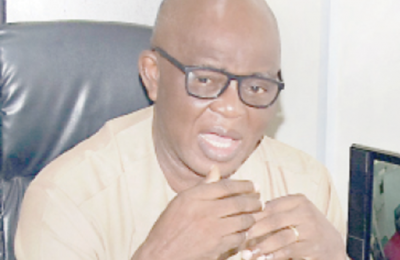As Nigerian banks focus on expansion to meet the demand of a $1 trillion economy, analysts at Proshare have warned of poor Asset and Liability Management (ALM) risks.
This information was detailed in Proshare’s third edition of its Tier 1 banks press statement report presented in Lagos last week.
The analysts, who called for attention to macro and microeconomic risks as seen in the United States of America (USA), said poor asset and liability management (ALM) was a major contributor to the failure of several US banks, such as Silicon Valley, First Republic and Signature Banks, in 2023.

According to the report, as the Nigerian banking sector evolves, Access Holdings stands out for its proactive approach to addressing macro and microeconomic risks.
The analysts emphasise that “with higher capital levels, banks must use the larger amounts of cash available to improve shareholder returns and customer service experiences. Many banks will get cut at the knees by lacking a deliberate strategy to transition from cash flow to value creation.”
The report further highlighted Nigeria’s economic trajectory, noting: “Nigeria’s GDP in 2005 was N38.78 trillion and rose to 77.94 trillion, roughly two times in 2023, suggesting an average annual growth rate of 3.55 percent in the last two decades.
“However, between 2000 and 2005, bank equity sizes grew over 10 times or by 1,150 percent from N2 billion to N25 billion. In other words, for a decade and a half, banks have used 10 times more equity in their businesses than before 2005, yet the country’s GDP growth has been modest.”

The report, however, clarified that simply raising Nigerian banks’ equity base is not a guarantee for economic growth and development.
“Transforming bank equity into drivers of economic growth requires more than money; it requires a coordinated public and private sector plan, with what Proshare analysts have repeatedly called a whole-of-government approach to policies, programmes and processes,” the analysts stated.
Meanwhile, capital market and business leaders commended Proshare, a specialised financial information practice firm, for building a culture of credibility and resilience in its over 17 years of existence as a company.
This was the summation of the remarks at the unveiling of the book, ‘Beyond Profit: How a Nigerian Company Built a Culture of Credibility,’ at the CIBN Hall, Victoria Island, Lagos.
The 388-page book, written by Mr Tosin Adeoti, captures the evolution of Proshare from an analyst service to a financial information hub providing reliable, credible and timely market information.
Mr Foluso Phillips, the founder and Chairman of Phillips Consulting, extolled the qualities of Mr Olufemi Awoyemi, the founder and Chairman of Proshare, who he described as an embodiment of character, competence and chemistry.
In a fireside chat anchored by Mr Boason Omofaye, the host of the AriseXchange Programme and founder of Frontier Africa Reports, Awoyemi expressed gratitude to Phillips for playing a significant role in shaping his career and equipping him to be a thorough-bred professional.
According to Awoyemi, “The summary of it all is I worked from a foundation where I understood that building good habits is more important than standing out. When you build good habits, you then develop muscle memory.”
He said the goal was to build the Proshare platform and benchmark it against global financial media and investment firms like Bloomberg and Reuters. He also described Proshare as an information service with the DNA of a professional services suite and an analyst’s mindset.
“If there is something we have learned over the years, it is that a business does not thrive or fail on the circumstances it faces, but on the character it chooses to adopt, the culture that drives missions and the institutional resilience it builds to deliver the adaptability and agility required to weather storms. In short, we had to take on an outlier’s mindset,” he added.
ALSO READ: Atiku blames govt’s failure for journalists, others’ kidnapping







